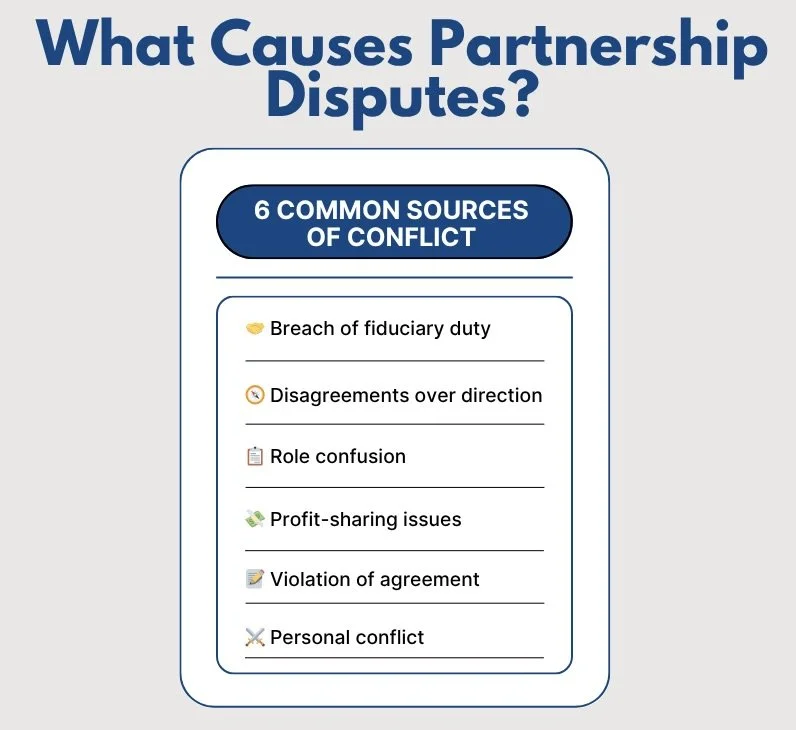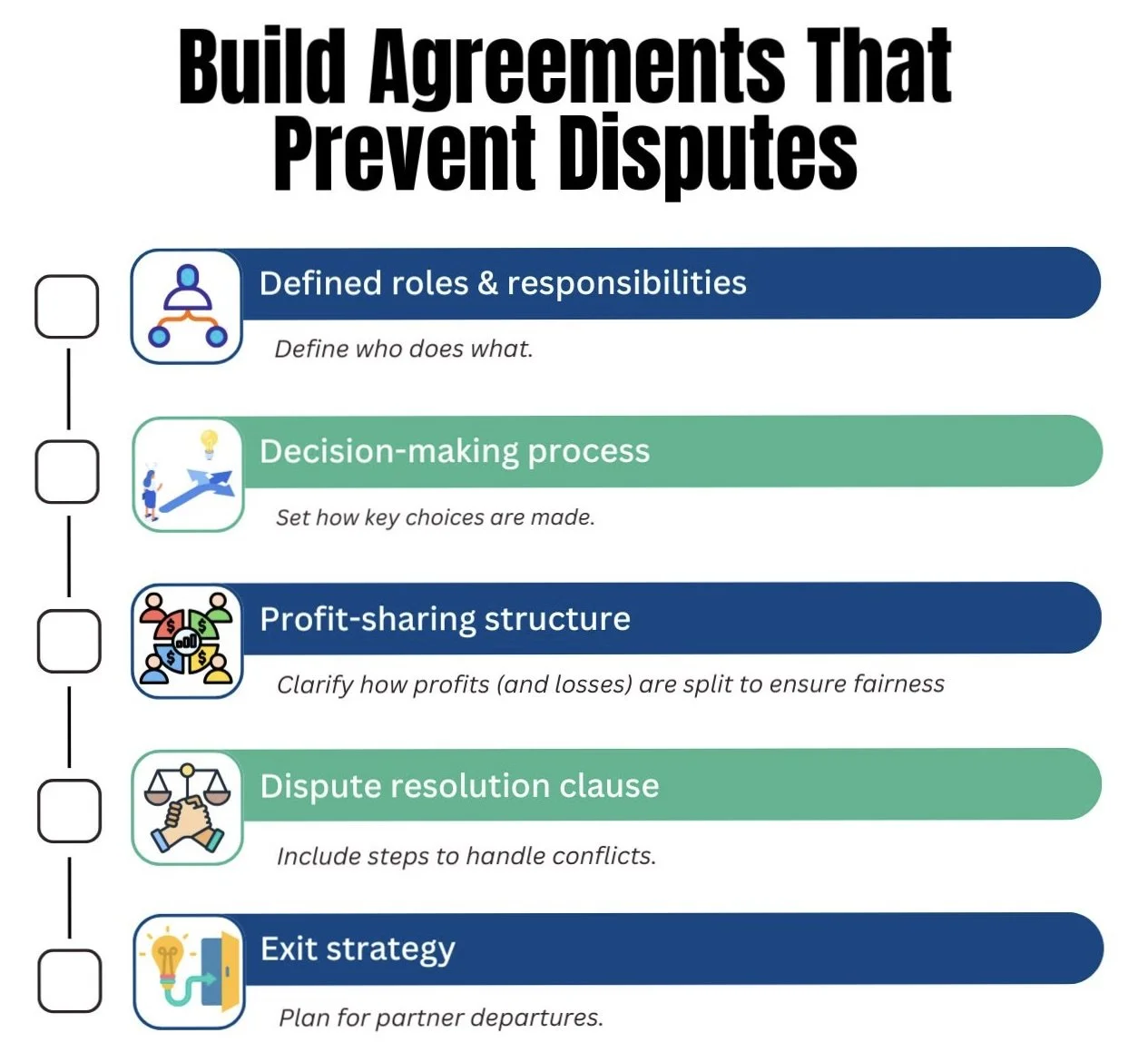When Business Partners Clash: Legal Remedies in Partnership Disputes
Even when things are smooth sailing at first, disagreements can arise in business partnerships. When disputes escalate beyond routine conflict and begin to disrupt operations, damage reputations, or threaten the business itself, legal remedies may become necessary. Understanding the legal landscape of partnership disputes can help you protect your rights, interests, and investments.
Common areas of disagreement
Partnership disputes often stem from breaches of fiduciary duty, disagreements over the direction of the business, definition of roles and scopes of work, profit-sharing issues, or violations of the partnership agreement. In some cases, personal animosities can bleed into professional relationships, exacerbating underlying tensions.
Even well-drafted partnership agreements cannot always anticipate every potential conflict. However, a comprehensive agreement can provide a solid foundation for resolving disputes. When this isn’t enough, partners may need to consider formal legal remedies.
📌 Even strong partnerships can break under pressure.
Legal Remedies for Partnership Disputes
1. Mediation and Arbitration
Before turning to litigation, many partnerships attempt alternative dispute resolution (ADR), such as mediation or arbitration. These methods are typically faster and less expensive than going to court and can help preserve business relationships. Many partnership agreements include mandatory ADR clauses, requiring partners to attempt resolution through mediation or arbitration before initiating litigation.
2. Injunctive Relief
If a partner is taking actions that could cause immediate harm to the business—such as misappropriating assets, disclosing trade secrets, or competing directly—a court may issue an injunction. This is a court order that prohibits certain conduct or compels specific actions to prevent irreparable harm.
3. Accounting and Financial Review
In disputes involving financial improprieties or suspected mismanagement, courts can order a full accounting of the partnership’s finances. This process provides transparency and helps identify discrepancies or breaches of fiduciary duty, enabling a fair evaluation of possible damages claims.
4. Expulsion of a Partner
Depending on the partnership agreement and applicable state law, it may be possible to expel a partner whose actions are detrimental to the business. Grounds for expulsion typically include misconduct, breach of duty, or consistent failure to perform. Expulsion can be carried out through procedures specified in the partnership agreement or, in some cases, by court order.
5. Dissolution and Winding Up
When it isn’t possible to resolve disputes, the final option is often to dissolve the partnership. This involves ceasing operations, paying off debts, liquidating assets, and distributing remaining assets among partners. While dissolution is usually a last resort, it may be necessary if the business can no longer function effectively.
Preventing Future Disputes
Well-drafted partnership agreements are the cornerstone of dispute prevention. They should clearly outline roles, responsibilities, decision-making processes, profit-sharing, dispute resolution mechanisms, and exit strategies. Regular communication, transparent operations, and periodic reviews of the partnership agreement can also help minimize conflict.
🧠 Your partnership agreement is your first line of defense.
Conclusion
Partnership disputes are complex and emotionally charged. When business partners clash, the legal system offers a variety of remedies—ranging from ADR and injunctions to expulsion or dissolution. Business owners should seek legal counsel early in the process to explore their options, protect their interests, and, ideally, preserve the business relationship where possible. If you have questions or concerns about a partnership dispute, or want to review your company’s agreement to help prevent future disputes, book a call with us to discuss.


